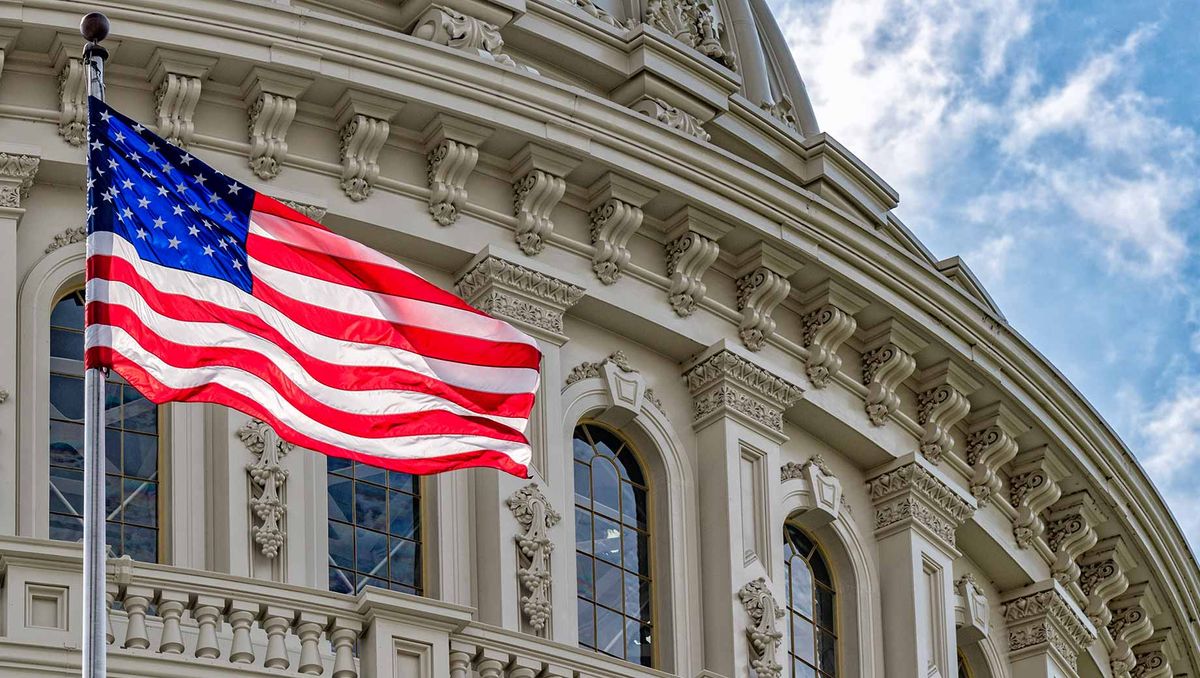US Crypto Regulation in 2023 (Everything You Need to Know)

The regulation of crypto in the United States falls under the authority of the Financial Services Oversight Council (FSOC) and its ten members. The members include the Federal Reserve, the Department of Treasury, the Commodities & Futures Trading Commission (CFTC), the Securities & Exchange Commission (SEC), the Office of the Comptroller of the Currency (OCC), the Federal Deposit Insurance Commission (FDIC), the Consumer Financial Protection Bureau (CFPB), and a few others that are less directly related to crypto.
The FSOC was established as part of the Dodd-Frank Act and is responsible for identifying risks and emerging threats to the financial system. This gives the committee the power to create policies to respond to new technologies like crypto. The committee is chaired by the Treasury Secretary and aims to ensure that the US financial regulatory framework is comprehensive and does not overlook any potential risks. Since the US financial market represents 38% of the world's total, the impact of the FSOC's decisions extends beyond US borders.
In Washington DC, there are five organizations that advocate for policies that support crypto: Coin Center, Blockchain Association, The Crypto Council for Innovation, a16z Policy Team, and The Chamber of Digital Commerce. These organizations prioritize seven key issues related to crypto:
Firstly, ensuring financial stability by setting clear rules for stablecoins and carefully integrating banks (Federal Reserve/OCC). Secondly, setting guidelines for Know-Your-Customer/Anti-Money-Laundering reporting while preserving privacy (FinCEN). Thirdly, clarifying tax rules and setting exchange reporting standards (IRS). Fourthly, creating Safe Harbors for community-governed tokens (SEC). Fifthly, introducing Decentralized Autonomous Organizations (DAOs) as a new organizational structure (Congress). Sixthly, harmonizing exchange oversight by creating a new regulatory body, the "Web3 Commission." Lastly, allowing for experimentation at the state and city levels (Courts/Enumerated Powers).
FDIC Chair McWilliams has a slightly different stance, believing that entities issuing crypto dollars outside of the banking sector should be backed 1-to-1 to avoid run risks. However, most stablecoin and lending activities have been conducted on a fully collateralized basis so far. The key is to ensure that reserves and solvency are audited to maintain transparency.
The alternative to reserve transparency is a severe crackdown that could resemble an outright ban on stablecoins. Senator Warren seems to advocate for such an approach. However, according to Chainalysis, illicit activity in crypto transactions is only 0.34%, lower than the incidence of illicit activity in "regulated" financial services, where banks have been notorious for money laundering for cartels and ultra-rich tax evaders.
The DCCPA, a bill that aimed to bring transparency and regulation to the crypto industry, is now seen as a flawed and tainted piece of legislation. The influence of FTX on the bill is undeniable, which raises concerns about whether the proposed law would have been effective in preventing FTX's alleged fraud. Although some parts of the bill may survive and be included in future legislation, it is unlikely that the current version will remain unchanged.
The Securities and Exchange Commission (SEC) is seen as a major opponent of the crypto industry, with its Chair, Gary Gensler, viewed as crypto's enemy number one in Washington D.C. The Senate Banking Committee, which is controlled by anti-crypto members, and the House Financial Services Committee, which is led by more crypto-friendly lawmakers, oversee the SEC. Gensler wants to regulate big crypto exchanges and believes that almost every asset, except Bitcoin, is an unregistered security.
The SEC's attitude towards crypto is in contrast to the Commodities and Futures Trading Commission (CFTC), which is more receptive to the industry. Therefore, crypto advocates want the CFTC in charge of regulating exchanges and custodians like Anchorage, Coinbase, Gemini, and Kraken. While the CFTC is a robust regulator, it is not openly hostile to the existence of cryptocurrencies, and exchanges would likely be able to comply with their oversight.
However, the SEC's oversight would be challenging for exchanges, and it would be difficult for them to list assets like Ethereum until they are either issued "no action letters" as non-securities or registered with the SEC. This poses a problem for decentralized Layer-1 protocols and their communities since they cannot produce centralized financial reports and disclosures.
In 2023, the ideal scenario for crypto regulation would involve the CFTC regulating custodial exchanges and "digital commodities" like BTC and ETH, while leaving DeFi out of their purview for the time being. Additionally, stablecoin issuers would face new oversight requirements that would outline the rules they must follow in order to fully integrate with the traditional financial system.
Only after these steps have been taken should there be a discussion around the SEC's role in overseeing bona fide crypto securities. One potential solution is SEC Commissioner Hester Peirce's Safe Harbor proposal, which could provide a framework for dealing with the gray area between securities and commodities.
The SEC wants all cryptos, except for Bitcoin, to be classified as securities so that they can be regulated. However, the DCCPA bill did not provide a clear solution to the problem of categorizing crypto assets. The bill attempted to create a new category called "digital commodities," which would give primary regulatory authority to the CFTC but also grant the SEC veto power over CFTC decisions. This approach is problematic and will require careful consideration to define terms correctly.
Gary Gensler, the current chair of the SEC, has a reputation for being quick to sue companies that violate securities laws. However, this reputation is not without controversy. For example, some have accused the SEC of cozying up to FTX while targeting other companies like Ripple for unregistered securities offerings. Grayscale has even sued the SEC over their rejection of a GBTC ETF conversion application, claiming that it was "arbitrary and capricious."
Despite his reputation for being tough on securities violations, Gensler has been criticized for missing some major issues within the industry. For example, the SEC did not investigate FINRA-registered broker dealers for their risky institutional lending practices, nor did they implement a redemption mechanism for GBTC, which led to harm for retail investors. Additionally, Gensler has been accused of prioritizing futures-based Bitcoin ETFs over spot-based ETFs, which have significantly lower fees.
Many in the crypto industry are calling for legislative guidance on the SEC's authority over crypto, as they fear that the agency's lack of clear direction could stifle innovation and lead to prolonged legal battles. Some have even suggested that a complete absence of legislation would be preferable to leaving the industry's fate in the hands of an agency that is openly hostile to crypto.
Despite these criticisms, Gensler has been successful in his push for greater oversight of the stablecoin market. However, his tactics in achieving this oversight have been controversial, as he has rebranded stablecoins as "stable value coins" to tie them to SEC-regulated funds.
Gary Gensler is a highly competent and ambitious figure who has had a successful career in both finance and government. Some have speculated that he may even have his sights set on becoming Treasury Secretary someday. However, his tough approach to crypto regulation has made him a controversial figure within the industry.
During a congressional hearing held on April 18, 2023, Gary Gensler, the chair of the Securities and Exchange Commission (SEC), appeared before North Carolina Representative Patrick McHenry. At the hearing, Gensler was asked about the regulatory classification of Ethereum (ETH). In short, the Commodity Futures Trading Commission (CFTC) thinks ETH is a commodity, while the SEC classifies it as a security. This led to confusion as to how ETH can be both a commodity and a security and how it can comply with regulations.
Although Gensler claimed that there is regulatory clarity, he did not specify whether ETH should be classified as a commodity or a security. Lyn Alden, a financial analyst, noted that commodities do not require permission from a group of paid developers to be unstaked, while securities do. This observation indicates the importance of understanding how ETH is classified, as it can affect its use and compliance.
While the Gensler hearing was lengthy, a four-minute clip of the discussion highlights the regulatory dilemma surrounding ETH's classification. It is likely that the CFTC will consider Ethereum as a commodity if it gains regulatory jurisdiction.



Comments ()